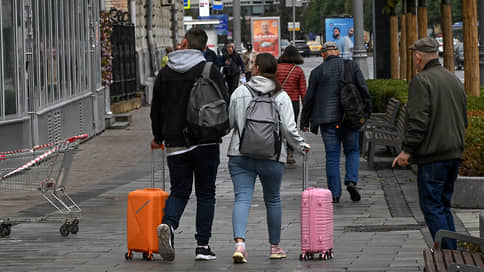Prices for temporary residence – Newspaper Kommersant No. 172 (7373) dated 09/17/2022
[ad_1]

The increased demand and the reorganization of the short-term rental market against the backdrop of the withdrawal of global booking systems from the Russian Federation led to an increase in the average cost of accommodation in apartments and suites. During the year, the indicator increased by 24%, to 3.15 thousand rubles. per night. Travelers are actively choosing such accommodation, trying to save money and remembering the negative experience gained during the COVID-19 period, when staying in hotels required additional information.
The average cost of short-term rent in popular tourist cities of Russia increased by 24% over the year, reaching 3.15 thousand rubles in September. per night, according to a study by Sutochno.ru. Analysts attribute the dynamics to the recovery of the market after the pandemic and the growth in the number of tourist trips within the country. Most noticeable – by 59%, up to 3.68 thousand rubles. per night, such rent has risen in price in Zelenogradsk (Kaliningrad region). In Nizhny Novgorod, prices increased by an average of 48% to 3.17 thousand rubles. per day, in Kislovodsk – by 47%, up to 2.8 thousand rubles. per night.
According to the estimates of the Association of Tour Operators of Russia, this summer the domestic tourist flow increased by 5% compared to the pre-crisis 2019. The same, according to the forecasts of the general director of the Dolphin tour operator Sergey Romashkin, will be the growth for the whole of 2022. According to OneTwoTrip, the average cost of accommodation in hotels against this background in September was at the level of 5.3 thousand rubles. per night, down 5% from a year earlier.
The increase in prices for short-term rental apartments this year was more pronounced, primarily in St. Petersburg, Moscow, Sochi and Kaliningrad, says Tvil.ru spokeswoman Oksana Shustikova. According to her, the trend is explained by the departure from the market of international booking systems like Booking.com and Airbnb, which dictated strict price parity (best price guarantee) to owners. Apartment owners may also seek to partially compensate for the losses of previous years, Ms. Shustikova adds.
The most popular city for short-term rent in “Sutochno.ru” is St. Petersburg, where the average cost of tourist housing for the year increased by 32%, to 3.32 thousand rubles. per day. In Moscow, which took second place, the indicator increased by 21%, to 3.78 thousand rubles. The most expensive short-term rent, according to analysts, is now in Sochi, where renting an apartment costs an average of 4.17 thousand rubles. per day, which is 36% more expensive than a year earlier. In Makhachkala, against the backdrop of a tourist boom in Dagestan (see Kommersant on August 3), short-term apartment rentals rose by 38%, to 2.86 thousand rubles. per day.
In Krasnodar, where the operation of the airport was limited throughout the spring-summer season, the average cost of short-term rental housing increased by only 12% over the year, to 2.23 thousand rubles. per day. And the cities of Crimea, which faced a 30-50% decrease in tourist traffic due to the interruption of air traffic this year, were not included in the top 15 most popular among travelers, follows from the study. Yury Kuznetsov, CEO of Sutochno.ru, points out that over the year the demand map of Russians has generally corrected: interest in trips to Zelenogradsk, Dagestan, the resorts of the Caucasian Mineral Waters, the regions of the Far East and Karelia has noticeably increased. Mr. Kuznetsov also calls Minsk a growing area of daily rent, linking the dynamics with the lifting of restrictions due to COVID-19. Over the year, the average cost of short-term rent in Minsk increased by 27%, to 3.49 thousand rubles. per night.
Oksana Shustikova explains that owners of flats and apartments in popular tourist cities still have the opportunity to raise prices, as demand significantly exceeds supply. Travelers are increasingly choosing this form of accommodation over hotels, she said, due to the overall quality of the offer and the consumer experience gained during the COVID-19 pandemic, when accommodation in apartments did not require additional certificates and hygiene standards. Some tourists may also seek to cut the travel budget, Ms. Shustikova adds. According to Ostrovok.ru, in September the share of apartments in the structure of bookings reached 15% against 5% a year earlier.
[ad_2]
Source link





